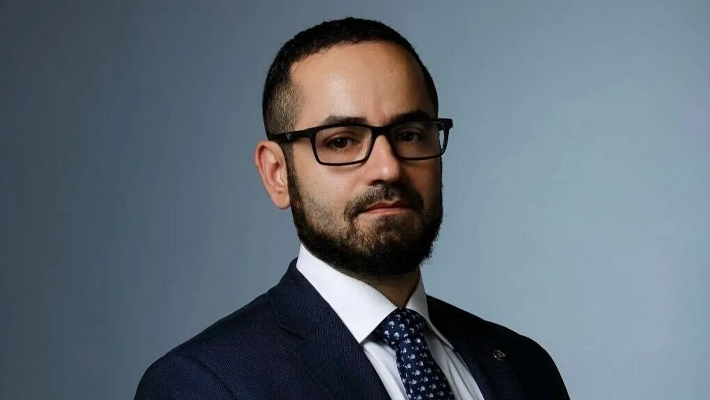
On Thursday, the Abuja Division of the Federal High Court fixed April 8 for ruling on an objection raised by Tigran Gambaryan, a Binance Holdings Limited executive, challenging the competence of the Economic and Financial Crimes Commission (EFCC)’s charge.
Mr Gambaryan, through his lawyer, Mark Mordi, opposed the move to be arraigned before Justice Emeka Nwite, insisting that the EFCC, having not served Binance, listed as 1st defendant in the charge, cannot arraign him.
The anti-graft agency had filed a money laundering charge against Binance, Mr Gambaryan, and Nadeem Anjarwalla (now at large) as the first and third defendants.
Mr Anjarwalla was said to have fled Nigeria after he escaped from custody on March 22.
The anti-graft commission filed a five-count charge on March 28, accusing the trio of laundering $35,400,000.
When the matter was called on Thursday for the defendants to take their plea, only Gambaryan was in court.
The EFCC’s lawyer, Ekele Iheanacho, informed the court that the matter was slated for arraignment and that the defendants had been served for them to take their plea.
But Mr Mordi disagreed with Iheanacho’s request.
He said the reading of the charge was premature because the charge was a joint one.
The senior lawyer argued that Mr Iheanacho was duty-bound to do the needful since Binance, listed as the first defendant, had not been served.
He insisted that since it was a joint charge, the company must be duly served before his client could take his plea.
Responding, Mr Iheanacho disagreed with Mordi, saying since Mr Gambaryan is the representative of Binance in Nigeria, it is the law that he can be served on behalf of the firm.
According to him, if the company does not show up, a non-guilty plea can be entered for it in accordance with Section 478 of the Administration of Criminal Justice Act (ACJA), 2015.
“My lord, we can proceed with the trial when he is the representative of the 1st defendant in Nigeria,” he said.
Mr Mordi, however, argued that Iheanacho conveniently omitted the preceding section to section 478 cited.
He argued that, under Section 477 of the same Act, Binance had to authorise Mr Gambaryan to represent it before the charge could be said to have been duly served.
Besides, he said each of the defendants ought to be served separately.
“Section 478 cannot be read without Section 477. My humble submission is that due process has not been followed, my lord,” he said.
The EFCC counsel argued that despite Mr Mordi’s stance that the company did not brief him, his submission suggested that he was holding brief for it.
He said the anti-graft agency attempted to serve the company through Mr Gambaryan but refused, saying he was not its representative.
Mr Iheanacho, who said the proof of evidence attached to the charge confirmed that Mr Gambaryan is a Binance representative in Nigeria, urged the court to discountenance Mr Mordi’s argument.
Besides, he argued that refusal of service of court processes also amounted to the service of the documents.
He said Mr Mordi confirmed that though Gambaryan was duly served, he refused the service.
Therefore, it is not in the position of the counsel for the second defendant (Mr Gambaryan), who has not announced appearance for the first defendant (Binance), to seek to challenge the arraignment on the ground that the first defendant has not been served because the second defendant was not briefed by the first defendant,” he said.
Mr Mordi, however, denied that he admitted true service was effected on Mr Gambaryan.
He said that based on the community reading of sections 123, 477, and 478 of ACJA, 2015, a mandatory process must occur where criminal proceedings are triggered.
He said Mr Gambaryan was neither a Binance director, one of the partners, nor a company secretary.
According to him, he does not reside in Nigeria to qualify as an agent within the jurisdiction.
But Mr Iheanacho countered his submission, insisting that Mr Gambaryan is the chief agent of Binance in Nigeria.
He said that based on the community reading of sections 123, 477, and 478 of ACJA, 2015, a mandatory process must occur where criminal proceedings are triggered.
He said Mr Gambaryan was neither a Binance director, one of the partners, nor a company secretary.
According to him, he does not reside in Nigeria to qualify as an agent within the jurisdiction.
But Mr Iheanacho countered his submission, insisting that Mr Gambaryan is the chief agent of Binance in Nigeria.
He argued that, based on the law’s provisions, though the firm had no physical presence in the country, its representative could be served.
“It is a settled principle of law that the law does not allow or command a party to do an impossibility. So, a party who has no physical presence in Nigeria must have a physical agent in Nigeria.
The good thing about the law is that it allows for substituted service. Section 124 provides for a substituted service on an individual and not on a corporation. The learner silk has not studied the section well.
“Therefore, Section 123(b)(IV) has been complied with since the chief agent is in court. So my lord, service on the first defendant which he refused to accept is a proper service on the first defendant,” he argued.
He further argued that Mr Mordi could not be holding a brief for Binance because he had yet to appear for it.
“So we urge you to discountenance all the submissions made by counsel. They lack the capacity to do so. We urge you to enter a plea of non-guilty for the 1st defendant and proceed to a trial in this matter,” he prayed.
The judge adjourned the matter until April 8 for a ruling and ordered Mr Gambaryan remanded in the EFCC’s custody pending the arraignment.